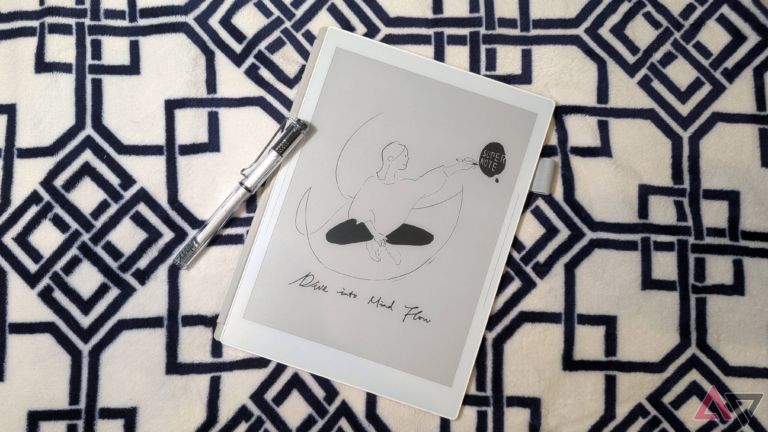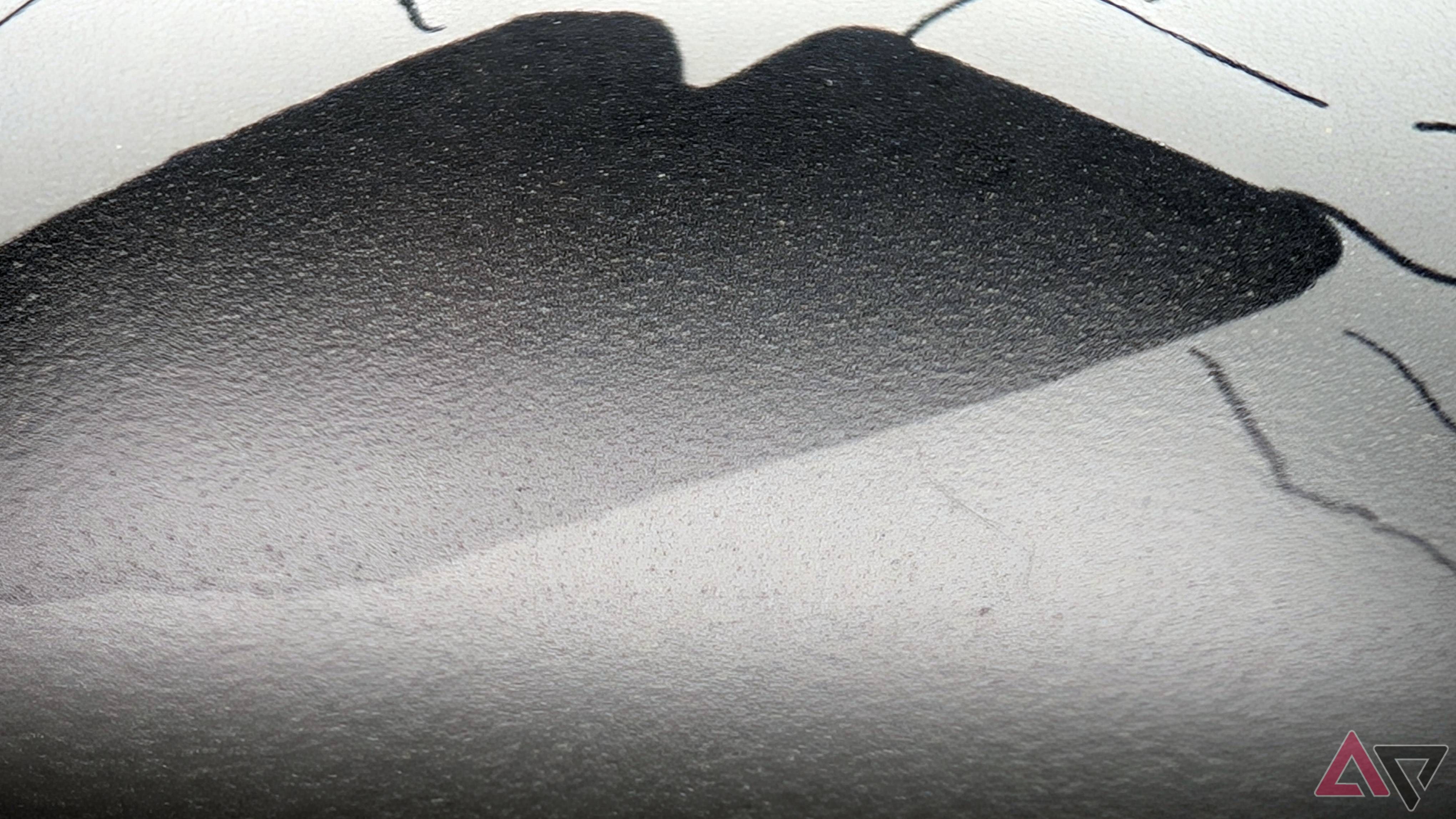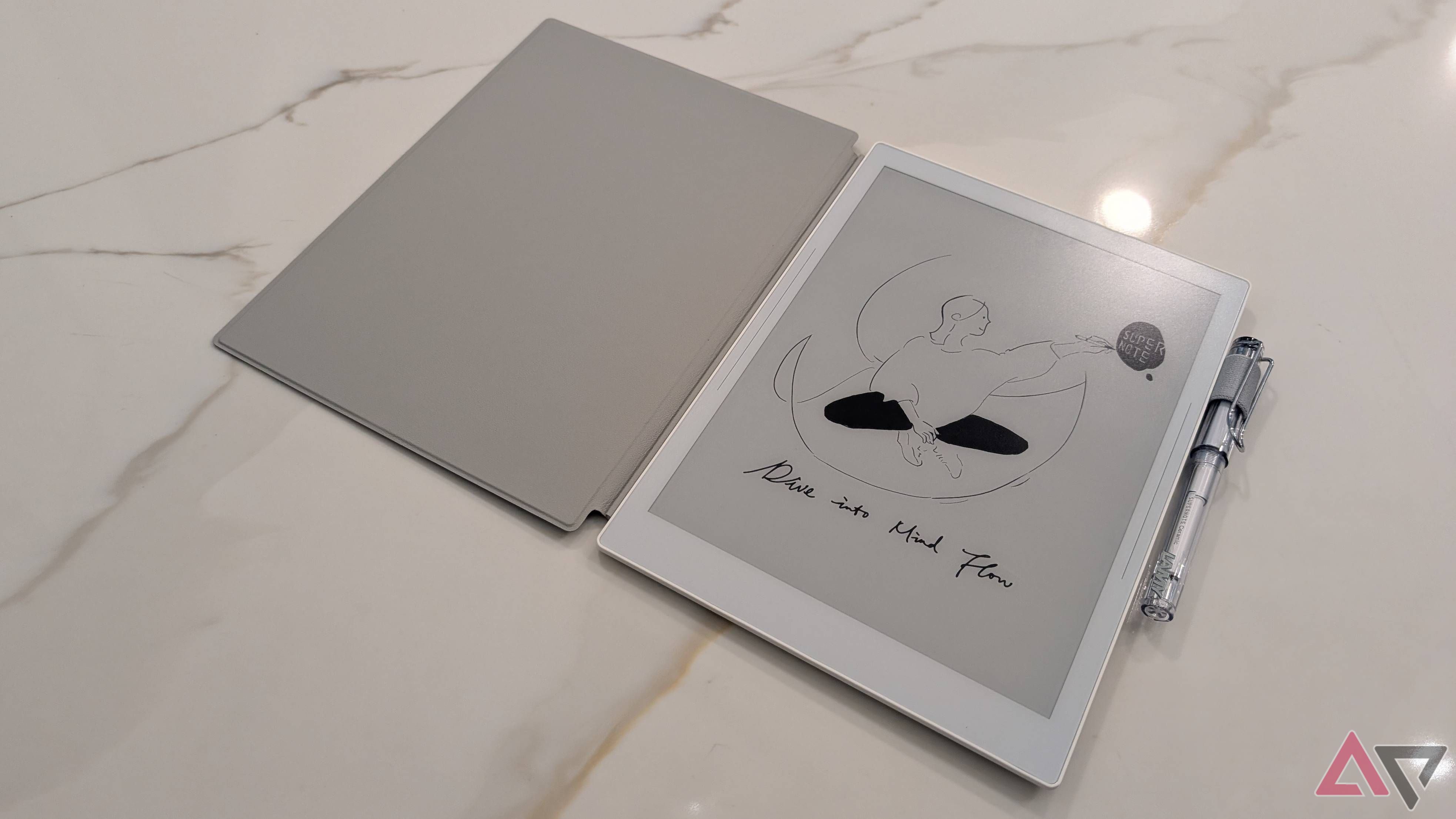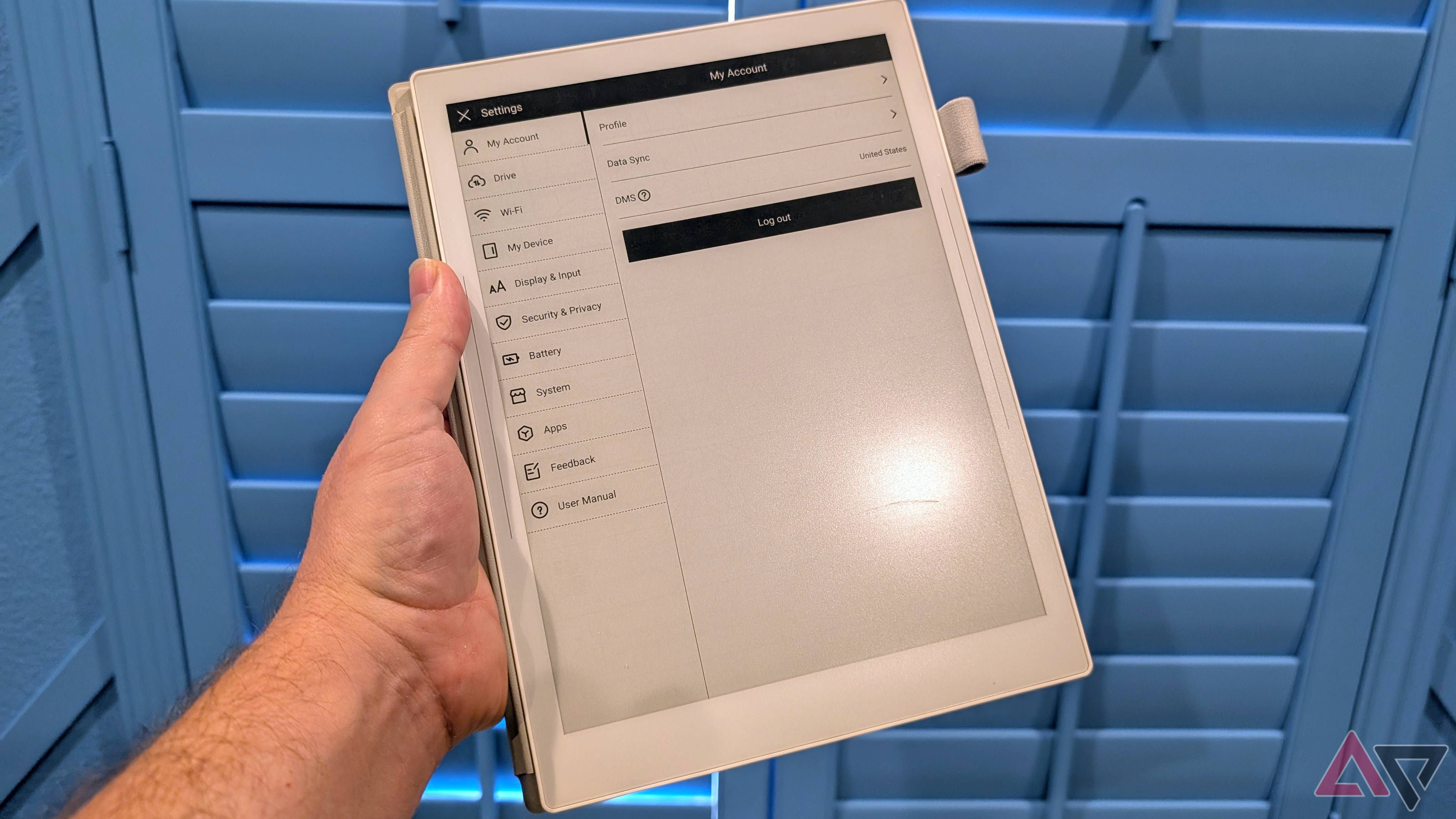Few E Ink fandoms are as faithful as Supernote users. Ever since the Nomad (also known as the A6 X2) was released earlier in the year, fans of the privately-owned E Ink device maker have been clamoring for the latest incarnation of its A5-sized tablet. It didn’t help that Supernote had been touting its imminent release for most of 2024, only to push back the date until mere weeks before the holidays. But despite the shaken faith of many adherents, Supernote has delivered on its promise and released the Manta (A5 X2) into the wild.
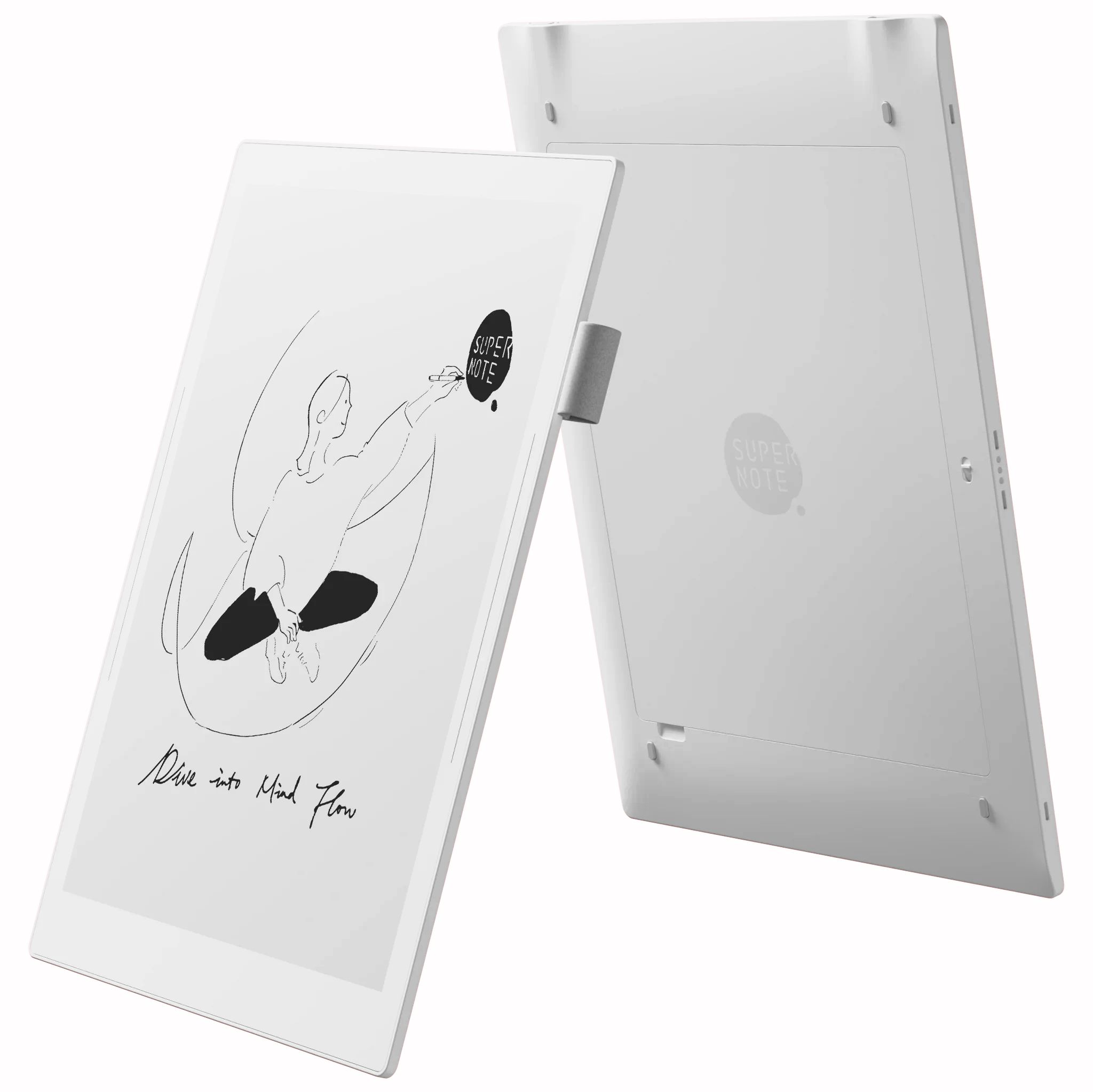

Staff Pick
Supernote Manta
The Supernote Manta is the next evolution of the A5 X2. It’s lighter, larger, and more functional than the A5 X, while still keeping everything that people love about Supernote’s lineup, namely its first-class writing feel and custom software like the Chauvet OS and Atelier drawing program.
- Impeccable writing experience
- Very refined note and drawing app
- Lightest device in its class
- More expensive than its competitors
- Sideloading apps is a chore
- Some first-party apps are afterthoughts
Price, availability, and specs
Definitely not a budget e-reader
If you want a Manta, it will cost you $460, and it’s only available to purchase directly from Supernote through its website. If you want to get some protection for your purchase, Supernote sells a half-folio cover that will run you $60, and the cheapest first-party stylus will cost you another $60, pushing the total cost up to $580. If you’re feeling flush, Supernote sells 12 different high-end styluses for $90 a pop.
Inside the shell, with its quad-core processor and 4GB of memory, the Manta is more powerful than most competitors. It’s also one of the first 10-inch e-readers to ship with E Ink’s Carta 1300 screens, so that means faster refresh rates and sharper contrast. However, remember that this is a specialized device, hyper-focused on writing, so you won’t find any speakers, microphones, or frontlights, just a USB-C port, a power button, and two touch-sensitive strips along the left and right bezels.
What’s good about the Supernote Manta?
It feels good to write
The first thing you notice about the Manta is how nice it feels to write on it. Most writing-first E Ink devices feel like writing on frosted glass or a chalkboard. It’s not an unpleasant experience, but it lacks some of the analog charm of writing on paper. Supernote uses a special proprietary film on top of its display called FeelWrite 2. Although it’s not a drop-in replacement for paper, it comes much closer than most of its competitors.
The first thing you’ll notice is the subtle elasticity of the surface, which can deform and recover under the pressure of your writing. It feels like writing in a notebook, with dozens of layers of paper beneath your pen. In addition to this elasticity, the surface is also visibly textured. This combination of features gives the Manta a unique writing tactility unmatched by just about any other tablet.
The soft display also allows Supernote to pull off another trick that most other writing tablets can’t. Because most writing tablets have a hard surface covering their displays, the nibs on their styluses have to be soft to avoid scratching them. That means that, over time, those nibs wear down and need to be replaced. Thanks to Supernote’s soft display, it can make its nibs much harder, giving them a much longer shelf life.
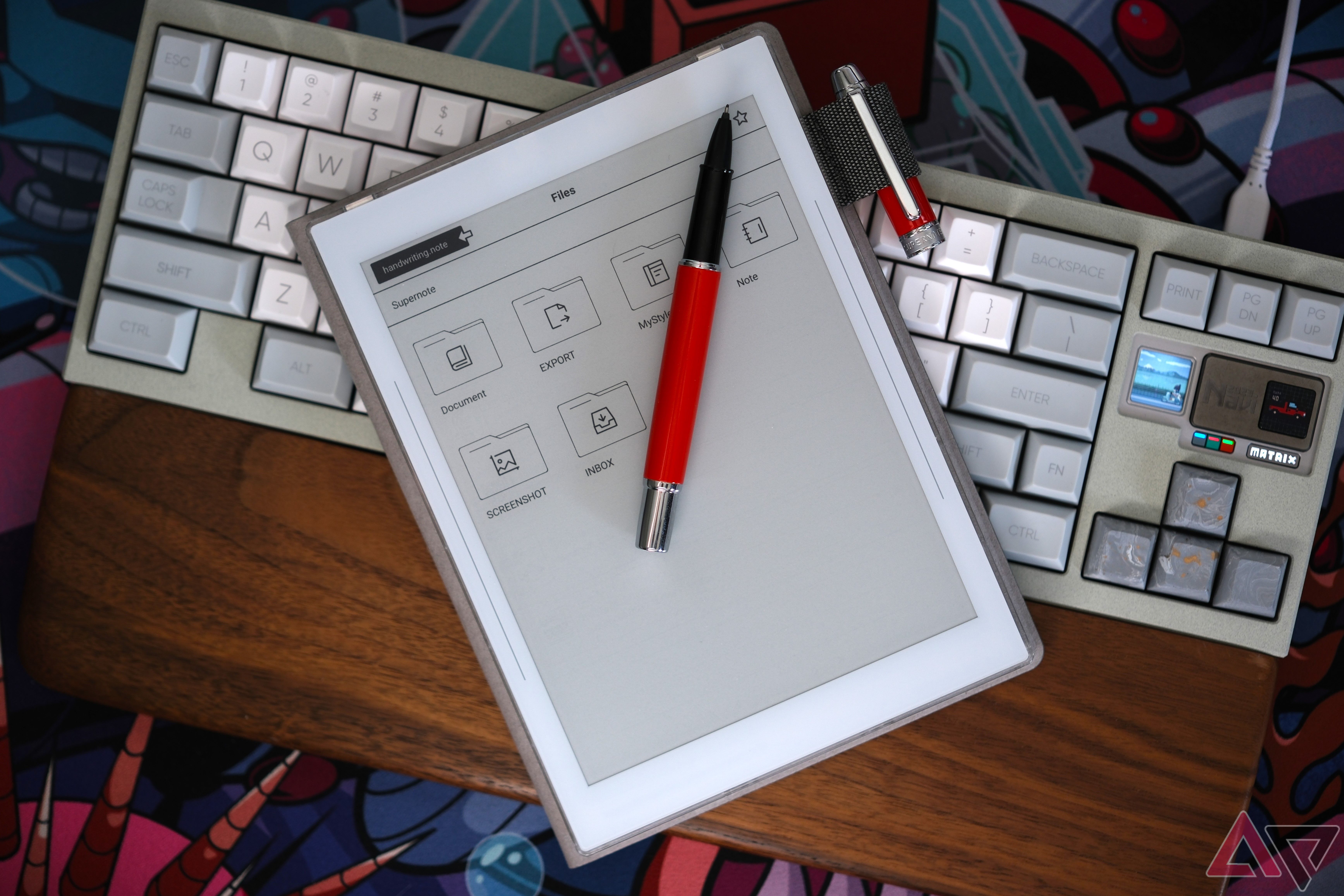
Related
Supernote Nomad tablet review: Real paper is old news
A note-taking experience that feels just right
It feels good to use
The Manta is actually the third iteration of Supernote’s A5-sized tablet, and rather than trying something radically different with every release, it’s been refining and perfecting it instead. You might not agree with Supernote’s UI choices for its custom Android-based OS (I think it’s pretty good), but there’s no doubt that it’s a mature, deliberately designed product.
It is an E Ink device, so you have to deal with a degree of latency, but overall, the Manta is snappy and responsive. I have yet to get stuck waiting for a menu to update or an app to load. The writing responsiveness is near perfect. The latency between the stroke of the stylus and the mark on the screen is nearly imperceptible, as is the parallax between the nib and the digital line.
Supernote’s first-party apps (one for note-taking and one for drawing) are so fully featured that you will need to reference the 160-page manual included on the device to figure out everything they can do. Despite this, thanks to a good UI, it’s easy to intuit the most important things on your own and browse through the manual to discover hidden gems as you get comfortable with the Manta’s strengths and limitations.
What’s bad about the Supernote Manta?
$500 is a lot of money
Let’s address the elephant in the room: The Manta is expensive. At $460, it’s the most expensive black and white e-reader under 11 inches. For just a bit more money, you can pick up a similarly sized device from Boox with a color screen, faster processor, more RAM, more storage, and a bigger battery. It won’t have the Manta’s luscious writing surface, but if those other specs are important to you, it’s not hard to choose the Boox over the Supernote.
Likewise, the first-party accessories for the Manta are also pricey. Paying $60 for a half-cover and $90 for a fancy stylus is a big ask for someone who has already dropped nearly $500 for a very niche device. Fortunately, this sting can be mitigated somewhat by the fact that you can buy a decent EMR stylus for around $30. Unfortunately, there are no readily buyable, purpose-built third-party cases available for the Manta yet, so the only protection available for your pricey tablet is the first-party one, which only protects the screen from incidental damage; it does not protect it from drops.
One of my pettiest gripes is how cumbersome some interactions are. For a device purpose-built for handwriting with hardware-based OCR, I should never be obligated to use a virtual keyboard. The Manta is a joy to write on — it fulfills so many promises of what digital stationery could be — but the screen is too big to comfortably accommodate thumb typing, and one-handed typing is just as cumbersome. Hopefully there’s some obscure trick to enable OCR typing that I just haven’t found yet.
Supernote also needs to curate more “approved” apps. Out of the box, the Manta comes with apps for notes, email, calendar, and to-do. If you explore the settings, you can find an “app store” to download Atelier and Kindle. Sideloading apps is easily enabled on the device, but actually doing it is a chore.
Look for a tutorial in the future, but suffice it to say that it involves downloading developer tools directly from Android and using the command line on your PC or Mac while connected to your device via USB. It’s a shame that Supernote hasn’t streamlined the process, or at least streamlined more apps. There is a ton of potential in the Manta.
Should you buy it?
Yes, but only if you can use it
It wouldn’t be an exaggeration to say that 2024 was the year of the E Ink writing tablet. Kobo added stylus input to its 7-inch Libra Colour reader in April. In June, Boox released the Go 10.3, which was followed by the reMarkable Paper Pro in September, the Boox Note Air4 C in October, and an updated Kindle Scribe in December. In other words, there are a lot of writing tablets to choose from and almost all of them are cheaper than the Manta.
Having said all that, none of those devices will feel as good to write on as a Manta. None of them have elevated their note-taking and art apps to the level Supernote has. It has to be said that reMarkable comes close on all of these counts, but the Manta exists in an open ecosystem that integrates with Microsoft and Google services. Despite the cumbersome method of sideloading apps, it is possible to sideload.
The Supernote Manta is not an all-purpose E Ink device. If you want a tablet that will let you read books in bed, the frontlight-free Manta is not the device for you. If you want unfettered access to the Google Play Store, again, buy something else. But if you want a tablet that is hyper-focused on the experience of writing or drawing while redefining what digital stationery can be, the Manta is worth the money.


Staff Pick
Supernote Manta
The Supernote Manta is an amazing machine, but it may not be the best machine for you. But, if stylus input is important to you, and you want a light device with a big screen, then the Manta might just be for you.
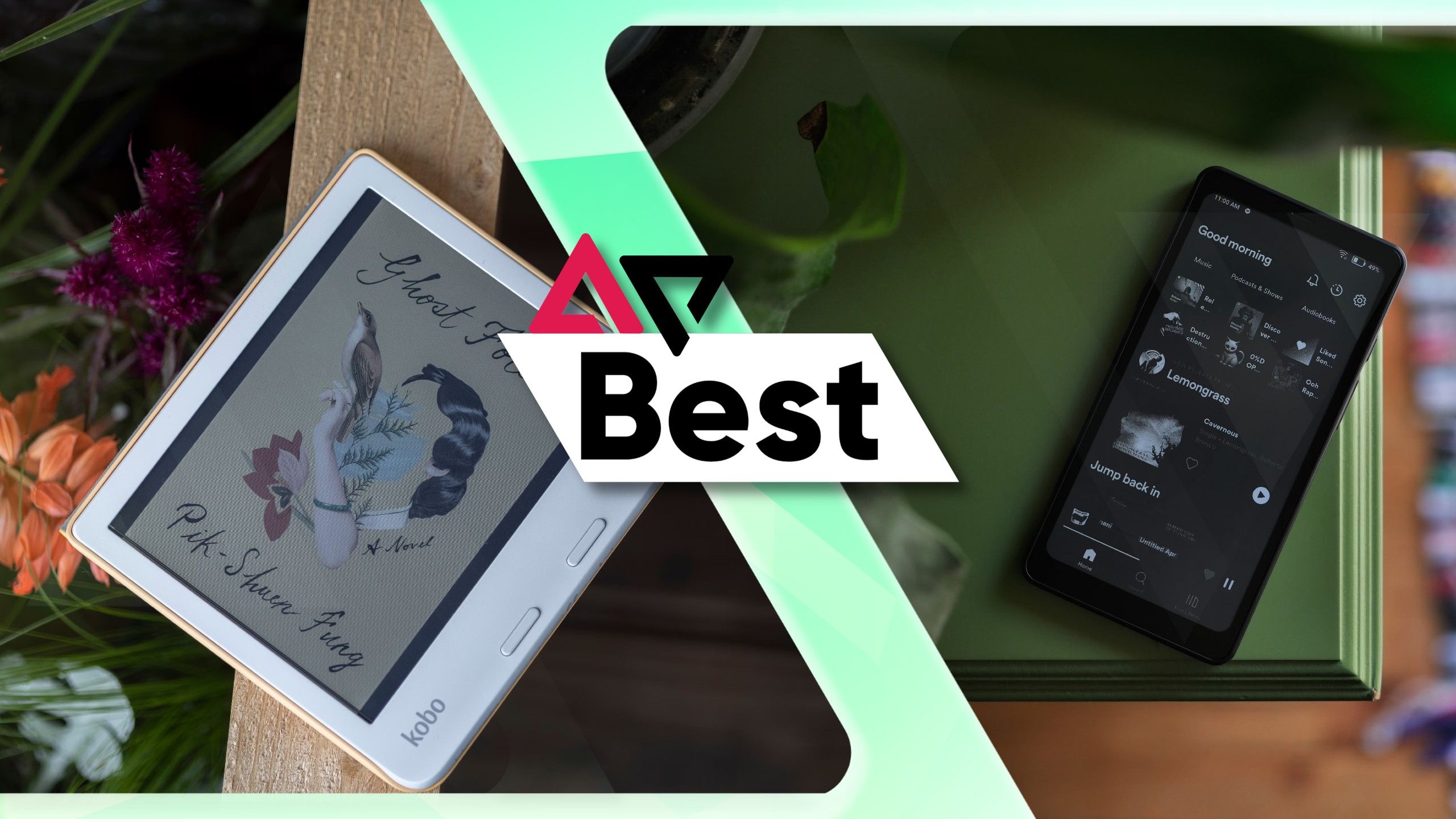
Related
Best e-book readers in 2025: Kindle, Kobo, Boox, and more
‘E-reader’ doesn’t just mean ‘Kindle’ any more
